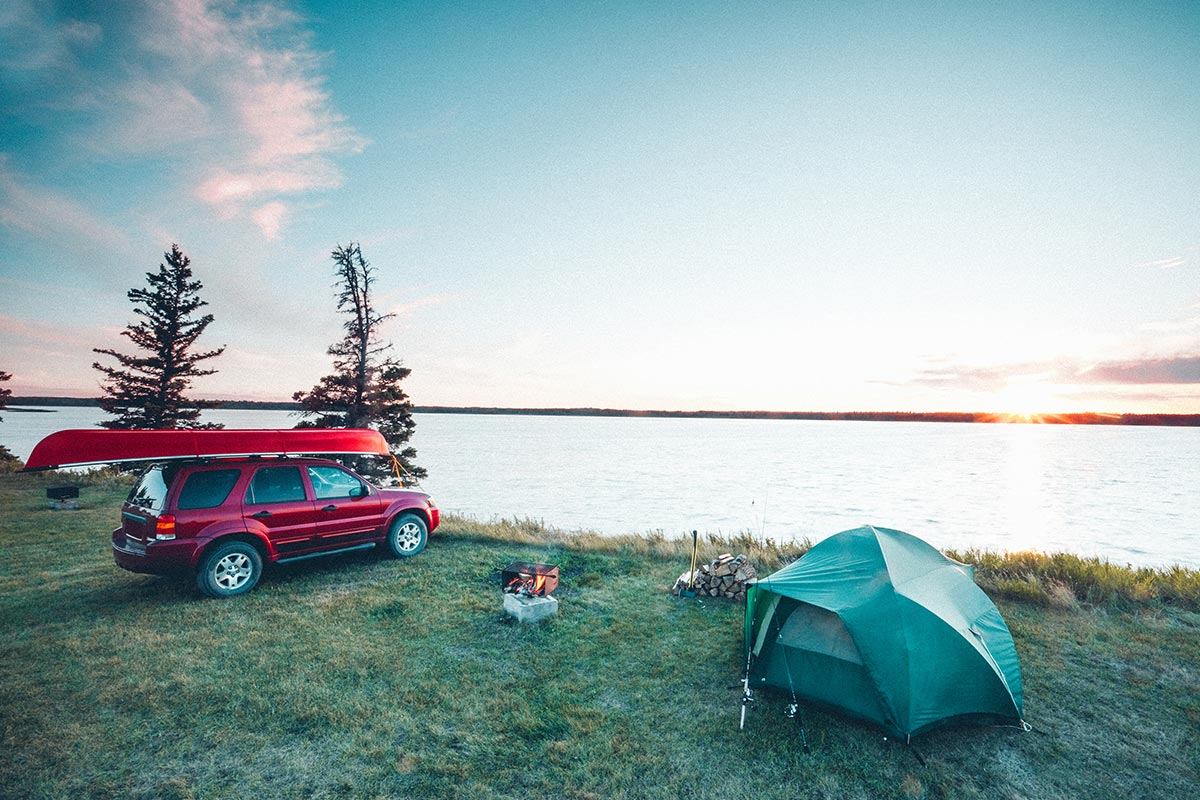
Don't Make These Common Motorhome Loan Mistakes
Buying a motorhome, or any other type of RV, is an exciting time in your life—one that will let you and your loved ones enjoy countless adventures and create cherished memories. Take steps to avoid the complications that come from disreputable lending practices or poor financial planning.
Whether you buy a new or used RV, the purchasing process should suit your individual needs. Here are the most common mistakes to avoid when buying an RV:
Overestimating what’s in your budget
Before you begin shopping for RV loans, it's important to establish a budget—and stick to it.
Start by creating a spreadsheet or keeping a simple list of your income sources, as well as what you spend each month. Once you've compared the two, you'll want to look at your overall financial picture—including what you want your retirement years to look like.
Add in a comfortable, estimated monthly payment for your RV loan. Use an RV loan calculator to help you determine what you can afford.
Not getting your credit score in check
Once you know what you can afford, look into improving your credit score.
Credit scores are calculated from several different pieces of data in your credit report. The two largest categories are your credit payment history, which accounts for 35% of your score, and how much you owe, 30% of your score. The rest is based on how long you've had your accounts (15%), whether you have new credit (10%) and the different types of credit you've accumulated (10%).
If you want to increase your score, look at each factor and make a plan to improve it. Some positive behaviors include maintaining a low balance, paying your minimum payments on time and not using more than 30% of your available credit. Tracking your finances can also help you make responsible decisions, which can increase your credit score.
The standard credit score range for RV financing is 600-700, but check with your lender to see what they recommend.
Not shopping around for the best loan
Owning an RV requires a significant financial commitment. Most buyers will need to get a loan. Not all RV loans are created equal, though, so check out a few financial institutions to find the option that suits your individual needs.
Most lenders offer flexible financing terms for new and used RV loans as well as refinancing—shorter financing terms with higher monthly payments, longer terms with lower monthly payments or something in between. Ultimately, look for a financing plan that works with your current, and future, lifestyle.
Failing to negotiate
Negotiating can be both an exciting and stressful part of the buying process. Regardless of the camper you choose, negotiate from the asking price when shopping for any vehicle.
Do your research first—the vehicle price guidelines from the National Automobile Dealers Association (NADA) can help you determine a fair price range. If the asking price is significantly higher than the price guidelines, you have data to back you up when you counter. At the same time, if the asking price is significantly lower than the value guidelines, this could be a red flag. Do some additional investigating before you buy.
Also, an RV or camper may require additional gear to use as intended. Make sure you know which equipment is part of the deal, sold separately or not essential.
Forgetting to get an inspection
Before you sign any official paperwork, ask the seller to have it inspected. A trusted mechanic should look at the following:
- Tires
- Battery
- Refrigerator
- Engine
- Transmission
- Brakes
Owing more than the RV is worth
Finally, structure your loan for success. Some experts estimate that a new RV can depreciate as much as 30% the moment it’s driven off the dealer lot. That's bad news for a new buyer.
The last thing you want to do with your motorhome is owe more than it��’s worth. Avoid this by making a sizable down payment. Another option is to start with a smaller, less expensive RV. Pay off the loan and then trade up for a bigger or newer model.
The simplest—and most important—strategy, however, is to stay on track with your payments without falling behind. Stick to your budget and communicate your needs to your lender—you'll be well on your way to owning your dream RV.
Related Articles

Is Owning an RV Worth it?

